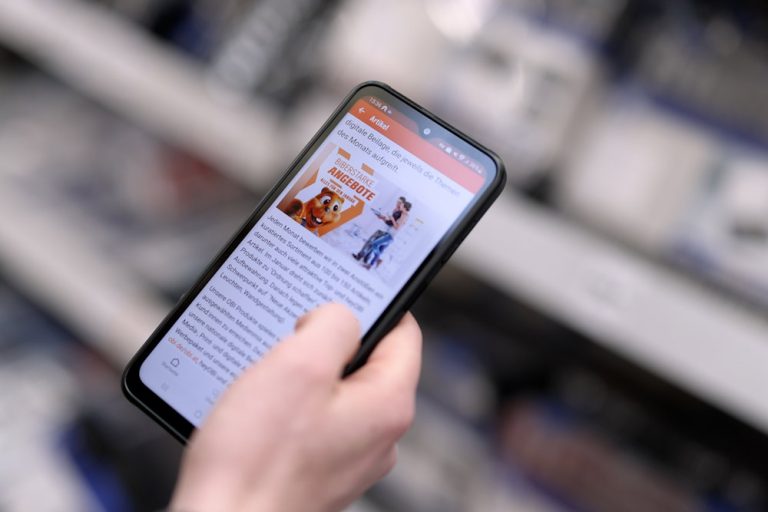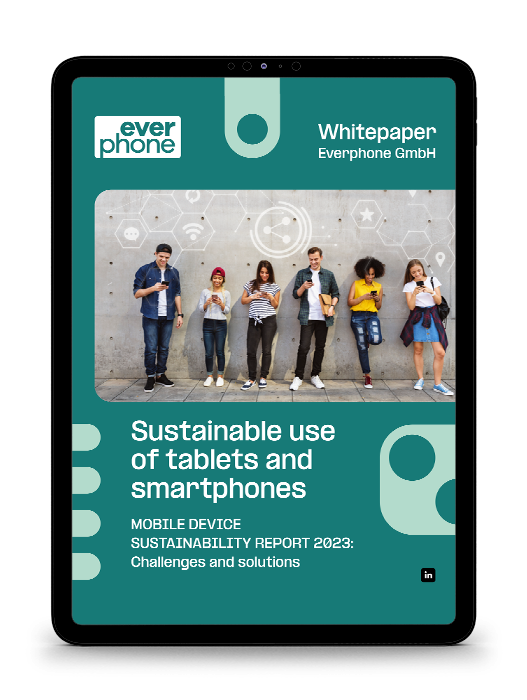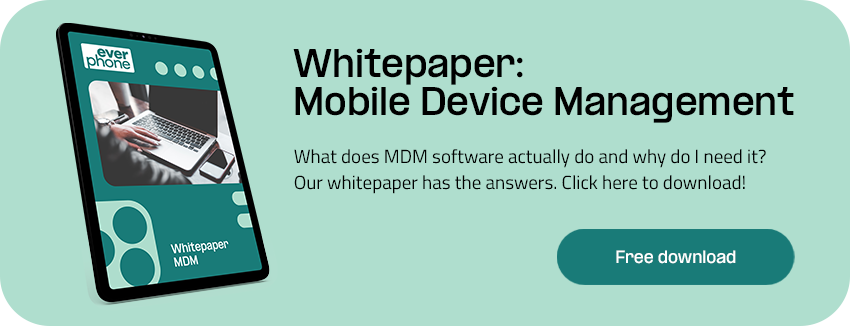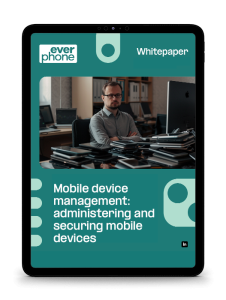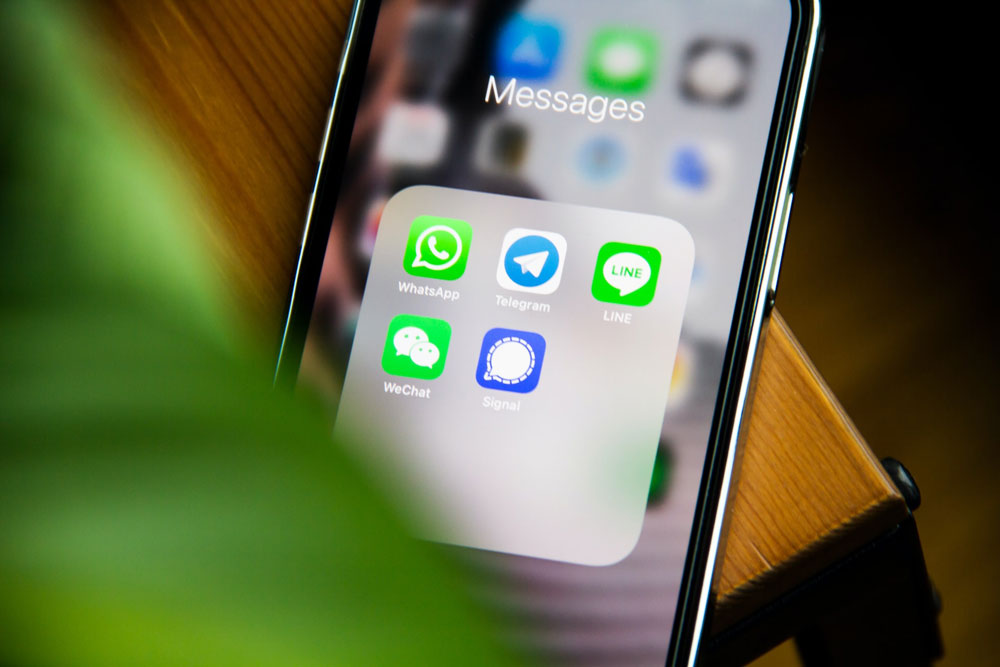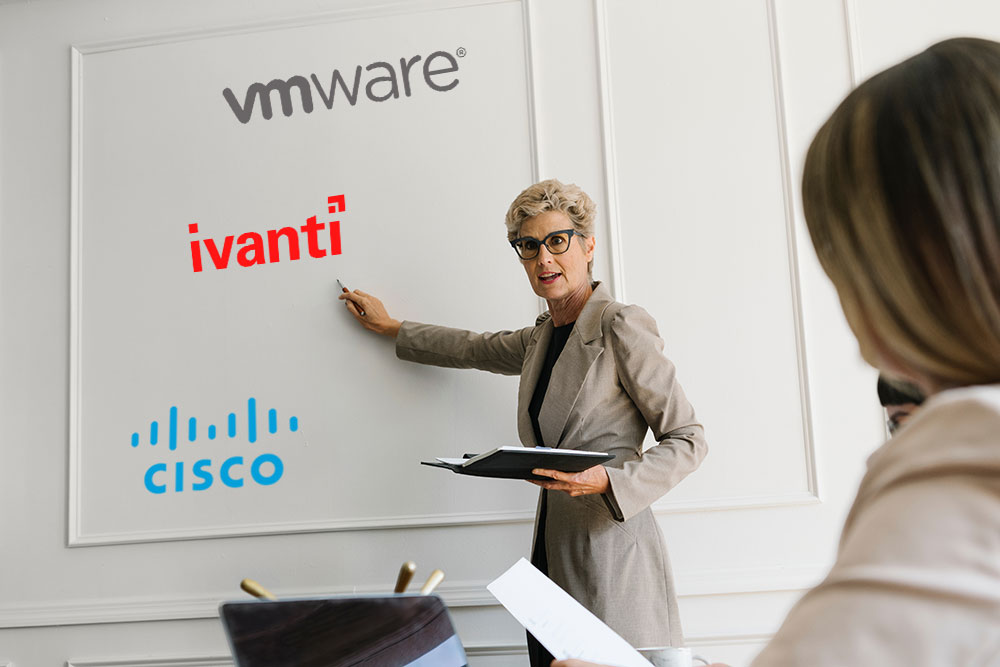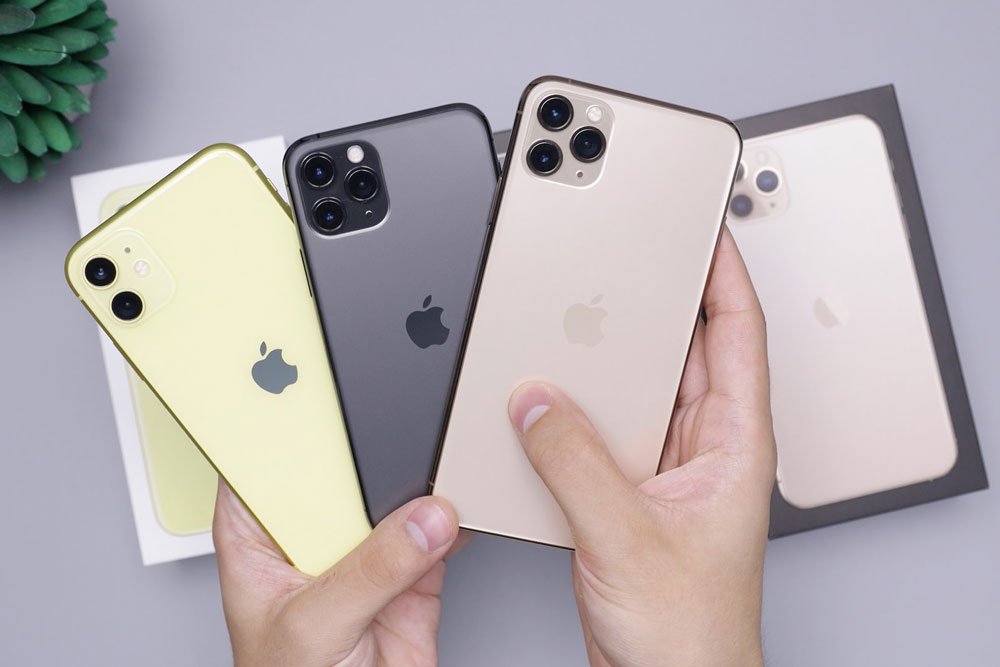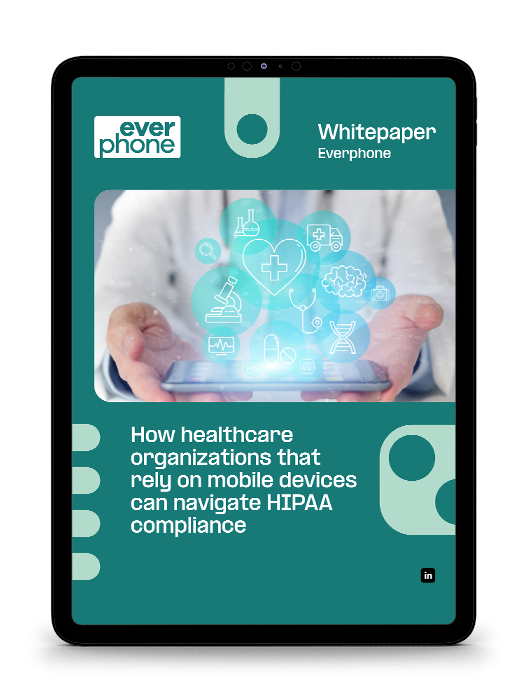Mobile device management as a new challenge: digitization within the workforce has increased various challenges for companies. More organizations are implementing hybrid workspaces, which include several employees working remotely. Smartphones and tablets are essential equipment needed for employees to remain productive throughout the working day.
Thus, companies are faced with procuring appropriate devices while retaining corporate security. So, where does your business start with device management? Which departments are involved in the process and what are their roles?
Who is involved in the procurement of mobile devices?
The procurement of mobile devices can be a complicated task for an organization. What seems to be a simple process is a web of back-and-forth communication between internal company departments and external providers. The procurement of company mobile devices involves (office) management, accounting, HR, purchasing, and the IT departments of a business.
Sourcing devices
Firstly, the company reaches out to distributors or manufacturers to compare the prices of smartphones. This is often done by the IT department or technical buyers from purchasing. Office managers are involved sometimes as well. When the best mobile phone plan has been approved, the IT department purchases the devices, and the distributor sends them to the company.
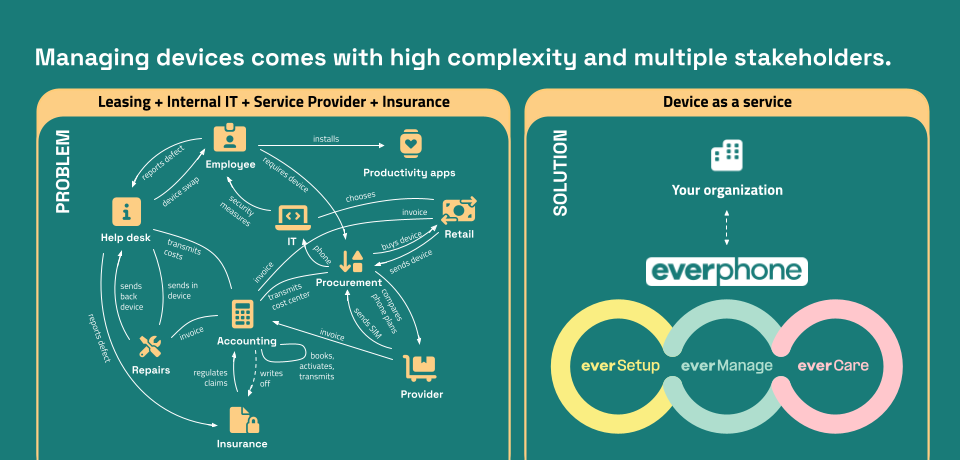
Managing phone plans
The next step is for the organization to find a mobile service provider for SIMs and connectivity. Like the procurement of mobile devices, management has to compare mobile service plans that align with the accounting department’s budget and the IT departments’ forecasted needs in terms of data, call time etc. The service providers then send the SIMs to the business.
Bundle or SIM-only?
Here, the problems start already. Most mobile providers offer “bundles” of smartphone and phone plan. It is quite difficult to calculate the effective TCO (total cost of ownership) in these offers, as there may be discounts and hardware subsidies that are not very transparent and hard to track, if you have to manage dozens or even hundreds of phones.
Mobile security measures
Once the mobile devices have been obtained, the IT department implements security measures to protect company data while complying with the GDPR laws to keep employees’ data private. This is usually achieved via an MDM (mobile device management) software.
Finally, the organization has to invest in insurance for the company phones. If an employee’s device is defective or lost, they have to report it to HR. The HR department sends the device to be repaired and reports it to the insurance company. The accounting department then has to deal with the insurance claims.
This complicated process for procuring and managing company devices involves high-acquisition costs and valuable organizational time and resources. This is not even considering large businesses with a global presence where you might have to find mobile’s with contracts in Austria, Germany or another country.
Outtasking device management
To simplify the process, businesses might look into mobile phone contracts for business customers that include a mobile device. But these can become costly. Fortunately, a simple process relieves your organization’s departments from all these tasks.
Device-as-a-Service
Device-as-a-Service (DaaS) from Everphone is a straightforward procurement process without hidden costs or fees. DaaS provides your business with the mobile devices it needs, suitable service provider plans, free repairs, and security apps to protect company data.
DaaS eliminates the timely procurement process by simply providing rental smartphones that align with your company’s budget. It also eliminates external repairs, insurance, and service providers by offering you free repairs if a device is defective.
In addition, the most challenging task after the procurement of the devices is the continual security measures that the IT department has to manage. With Everphone’s DaaS, every Everphone smartphone comes with an integrated Mobile Device Management (MDM) app to ensure security and privacy for company data. Alternatively, the MDM that is already being used in the company, will be integrated in the service.
What’s mobile device management in business?
Mobile device management is the process of managing mobile devices that all employees use for business operations within an organization. Most business operations and communication are conducted via a mobile device that employees use for personal and business purposes.
Organizations prioritize protecting corporate data and information that employees have access to, creating various challenges. The procurement costs of mobile devices and the IT resources used to manage mobile devices can be challenging.
Mobile device management (MDM) software fully manages company devices to protect corporate data while complying with laws that protect employees’ personal information.
The software deployment is immediate and centralized, allowing employees to use their device as soon as they switch it on, and the IT department can centrally access the corporate data.
The significant feature of device management software is the secure business container which separates all private and business data. This means two containers on one device keep all corporate apps, contacts, and documents in one space and all personal data in another. The container feature ensures that it is GDPR compliant to protect employee information from corporate access while providing the organization the power to secure its business data.
In addition, device management software provides integration of various mobile operating systems. This makes it easy for IT to deploy the software across different employee devices. IT’s rollout process and deployment are minimized because these processes require less investment and resources.
Ensuring corporate security
Security risks are a major challenge that organizations face within the digitalization of business operations. Businesses reduce outlay costs by allowing employees to use one device for personal and business reasons, placing corporate data at risk.
Businesses want to protect their company information on employees’ mobile devices by putting authorization and anti-malware measures. However, they need to comply with GDPR’s requirements. Thus, device management software separates corporate and personal apps into two independent containers that can’t interchange data or information.
Firstly, company data is protected via centralized software, allowing data policies, software policies, and user rights to be pre-configured before an employee uses the device. Secondly, employees can rest assured knowing that the organization can’t access personal data.
Conserving IT resources
The digitization of business operations and the data risks associated with it places major priority on the IT department to keep the company safe from any potential dangers, such as data theft or unauthorized access.
As the need for data protection increases, the organization spends resources, time, and effort putting measures to protect its data from operating successfully. The IT resources and time used on procuring, deploying, managing, installing, and operating company phones with data protection in mind add up.
The time and resources needed could be used for other business operations. MDM provides protective features that take the strain off the IT department and administration, giving them the time and resources to focus on other valuable projects within the organization.
Final thoughts
An integral part of any business is productive employees and clear communication channels. Telekom offers business customers the freedom to operate by employing remote workers who use smartphones and tablets to remain productive. However, the procurement and management costs and effort have become a new challenge that businesses need to navigate.
That’s why Everphone have created a service to benefit business with mobile needs with a simplified procurement and management process as well as mobile device management software that allows your business to centrally protect its data while guaranteeing employees quality smartphones and certain personal use.
